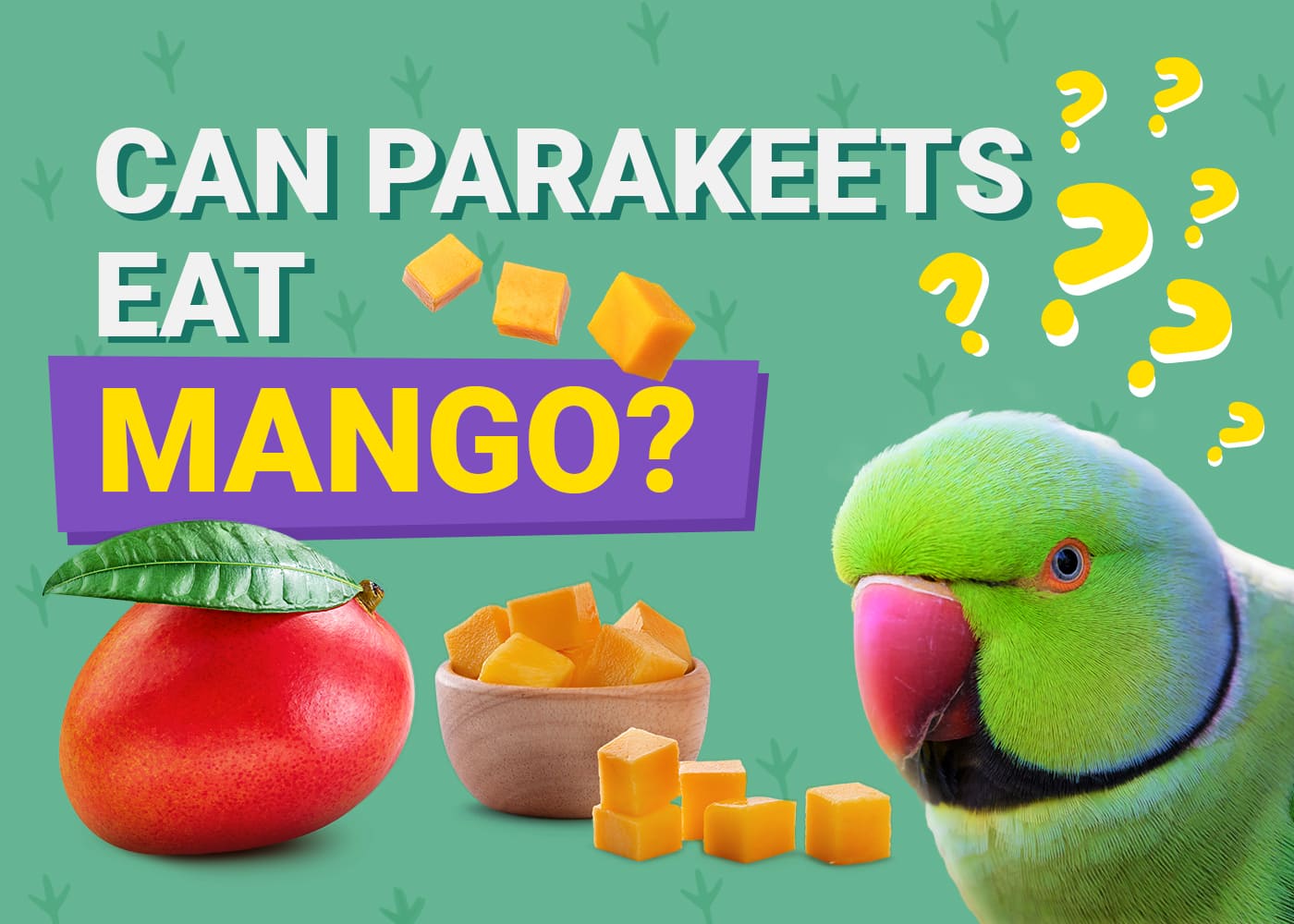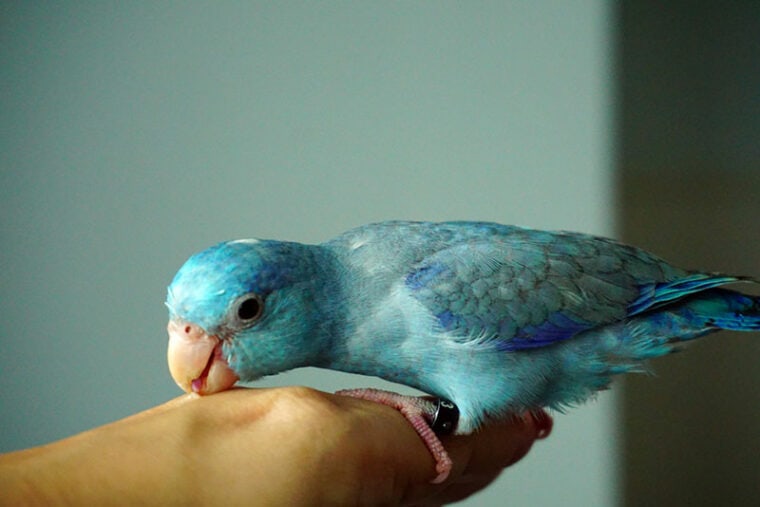
Parrots make awesome pets, but they can develop problem behaviors that make keeping them difficult. Biting is one of the worst behaviors a parrot can partake in, especially for you, as those bites hurt a lot. Parrots, especially large ones like Macaws, have very powerful beaks that could cause severe injuries in a split second. If your parrot is being extra “bitey”, you need to determine why so you know how to stop it.
Read on to find six reasons why parrots bite and four tips on how to stop this bad behavior before someone gets seriously hurt.
The 6 Reasons Why Parrots Bite
1. Fear
Parrots will bite as a fear response. Parrots are prey animals and can be easily startled by new situations, people, or things. They may not be afraid of you necessarily, but if they’re in a new environment or with strangers they don’t know, the biting could definitely be the result of this unfamiliar situation.
As prey animals, their fears may not always make sense to us, either. So, if your parrot is biting you out of fear, you really need to take a good look at their environment to see why. For example, I have a conure who is petrified of the blue mop I use in her room sometimes. The red mop is fine, but she cannot handle the blue mop.
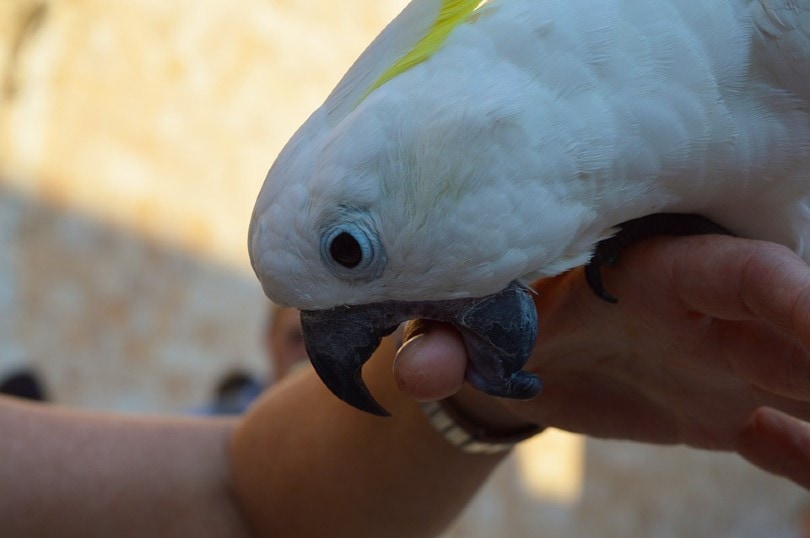
2. Possessiveness
Parrots can become very possessive of their favorite family members, their cage, and even their toys, so they may bite when they believe their favorite possessions or people are at risk.
To understand your bird’s possessiveness, it’s important to know a little bit more about wild parrots. In the wild, birds mate for life, often fiercely protecting their relationship and biting anyone or anything that gets in their way. While we humans often view possessiveness as a red flag in relationships and a negative trait to see in our pets, birds in the wild rely on it to keep their species alive.
3. Hormones
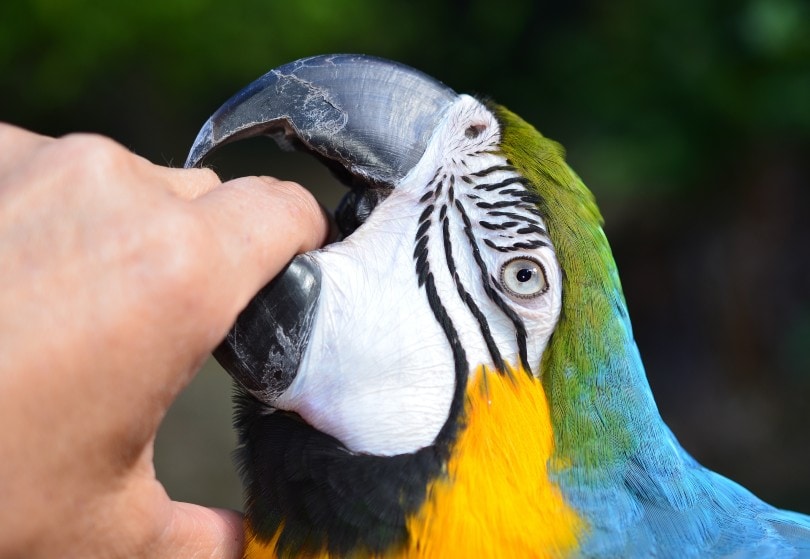
If you’ve had your bird for any length of time, you know what a burden hormones can be to deal with. When it’s breeding season, even the sweetest and most gentle bird can transform into a biting maniac. It’s no fault of their own, though; those hormones can wreak absolute havoc on your poor feathered friend. Other hormonal behaviors include:
You do not want to encourage hormonal behavior, so it’s best to follow these rules:
4. Illness
Parrots are generally very good at hiding illnesses, a skill they learn in the wild to preserve their species, as a sick or injured bird is very easy prey. However, your parrot may exhibit some signs that they’re unwell, including biting more than usual. Other signs of illness include:
5. Beaking
Sometimes when parrots use their mouths on your hands, they’re exhibiting exploration biting, also known as “beaking”. This is especially common in younger birds as they’re growing and learning more about their world, though it’s not unusual to see this behavior in older parrots, too. As hookbills, parrots use their beaks as a third hand to explore their climbing structures, including your fingers as they step up. This isn’t actually biting but is often mistaken as such.

6. Warning
Parrots often bite as a last line of communication. They do it to each other in the wild and will naturally do it even if they’ve been hand-raised. When birds choose to bite, it is almost always the owner’s fault as they’ve been trying to tell you something, and you missed all their signals. Their bite means they’re telling you to back off.
How to Avoid Getting Bitten
Learn Parrot Body Language

Learning how to read your parrot’s body language will go a long way in ensuring you don’t get bitten. Most birds will give their owners a clear warning before resorting to biting. Look for signs like:
Never Force Your Bird to Do Things
Please don’t force your parrot into doing something (e.g., stepping up or down, eating, etc.) they clearly do not want to do. Knowing how to read your bird’s body language will be a really useful skill, as you’ll then learn how to determine what your pet does and doesn’t want to do.
Socialize Them
Early socialization is key to a well-rounded adult parrot. Being socialized isn’t necessarily something that comes naturally to all parrot species. As a prey animal, it’s natural for them to be wary of new people and new situations, so they’re likely to be nervous or stressed out around people at first. Socialization is an essential part of parrot ownership, especially if you know your bird will be around more people than just yourself and those you share your home with.
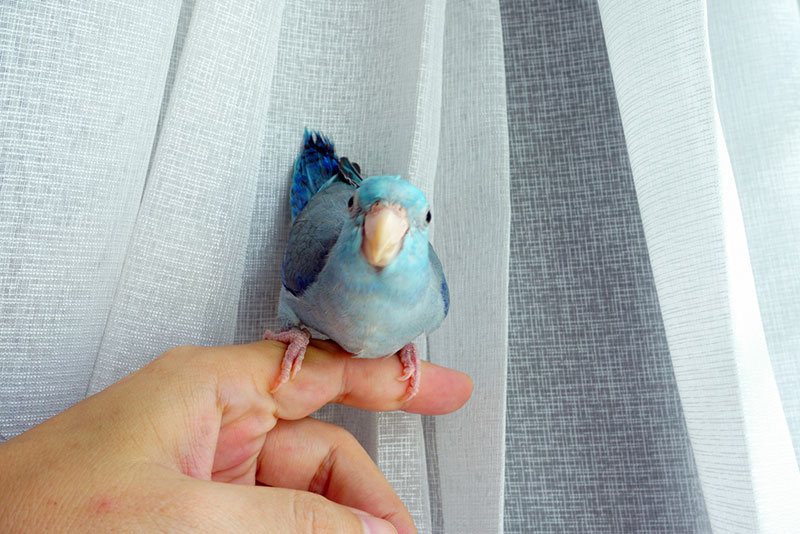
Train Them
Training your parrot to respond to commands like “step up”, “step down”, and “no” is a great way to avoid getting bitten. You may want to incorporate stick training into your regimen, where you use a stick to train your parrot to step up and step down. Make sure you have plenty of high-value rewards (like tasty treats) for training sessions so your bird will begin to positively associate with certain behaviors.
However, forcing your parrot to train when they don’t want to is a surefire way to get bitten.
Out-training biting behaviors can be challenging and time-consuming. It is worth your while, however, as we all know how badly parrot bites hurt.
What to Do When You Have Been Bitten

Your reaction to your parrot’s bites is an important part of breaking this habit. When your parrot bites you:
Final Thoughts
Parrots may bite for many reasons, so your job is to determine what triggered your bird into biting you. Once you can identify the trigger(s), you can make changes to your behavior or your parrot’s environment to prevent bites from happening in the future. Although biting is unacceptable behavior, ensure you’re reacting properly so as not to instill further fear into your bird, potentially precipitating more bites.
See Also:
Featured Image Credit: Ploychan Lompong, Shutterstock





